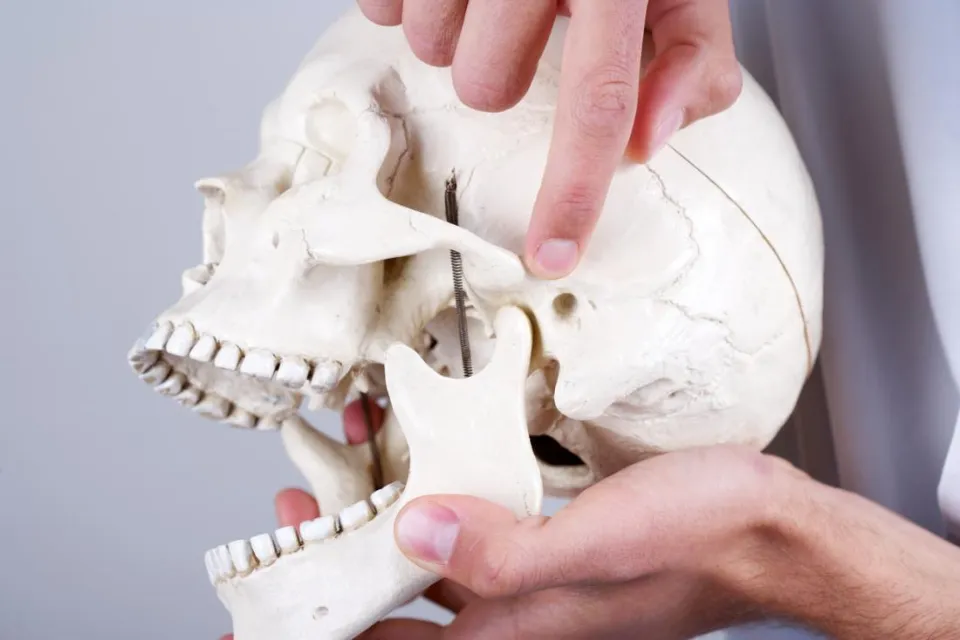
Can Braces Cause Temporomandibular Joint Dysfunction (TMJ)?
TMJ disorder is not known to be brought on by braces. According to scientific evidence, there is no connection between TMJ disorder and braces or any other type of orthodontic treatment.
The usual cause of TMJ disease is not orthodontics. TMJ pain, teeth clenching, mouth breathing, and poor sleep can occur whenever teeth are moved, the bite is altered, the tongue is repositioned, or the airway spaces are reduced.
Here is everything you need to know to get relief and dispel the myth that braces cause TMJ dysfunction.
What is TMJ Disorder?
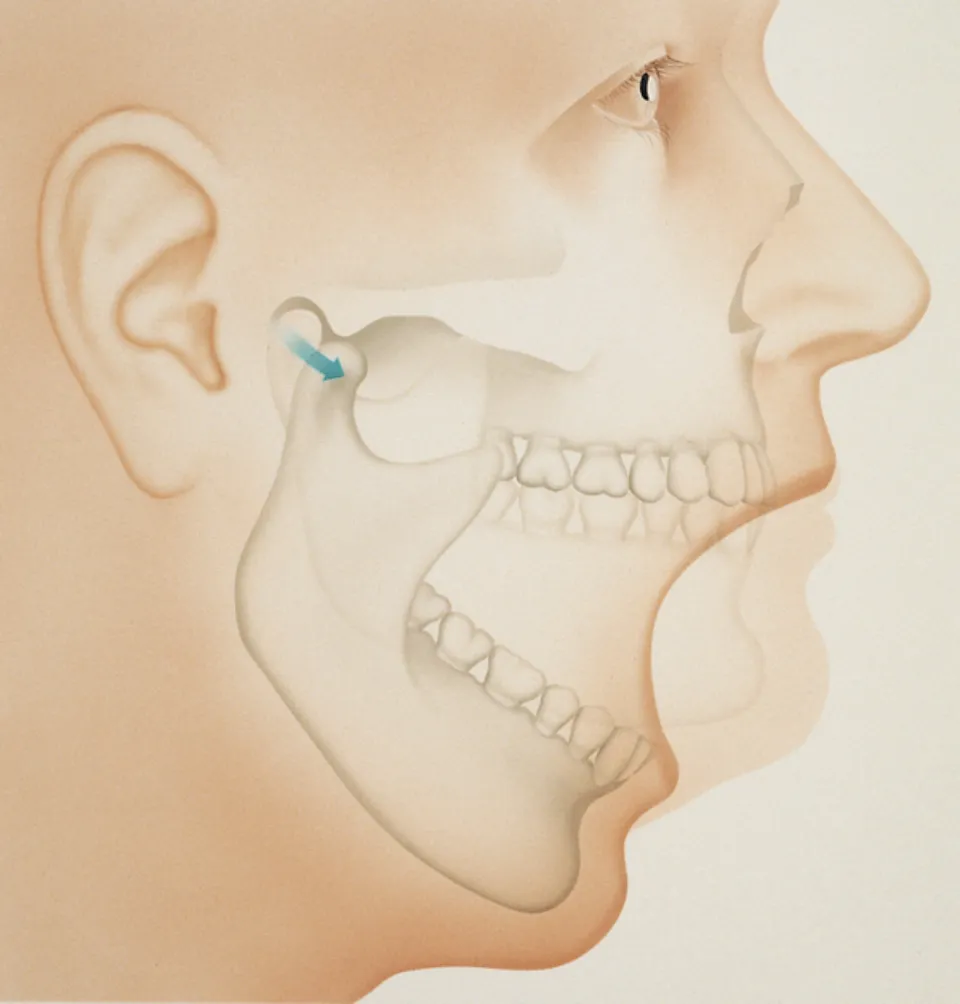
The temporomandibular joint is referred to as TMJ. The jawbone and skull are connected by this joint, which is situated in the jaw. Your TMJ serves as a kind of hinge for your jaw, allowing it to open, close, slide forward, backward, and side to side.
When a joint is not functioning properly, it weakens or impairs the jaw’s ability to move, which can lead to jaw problems, facial pain, locking and clicking, and trouble chewing. TMJ disorder is characterized by this joint’s dysfunction.
What Causes TMJ and What Are the Treatments?
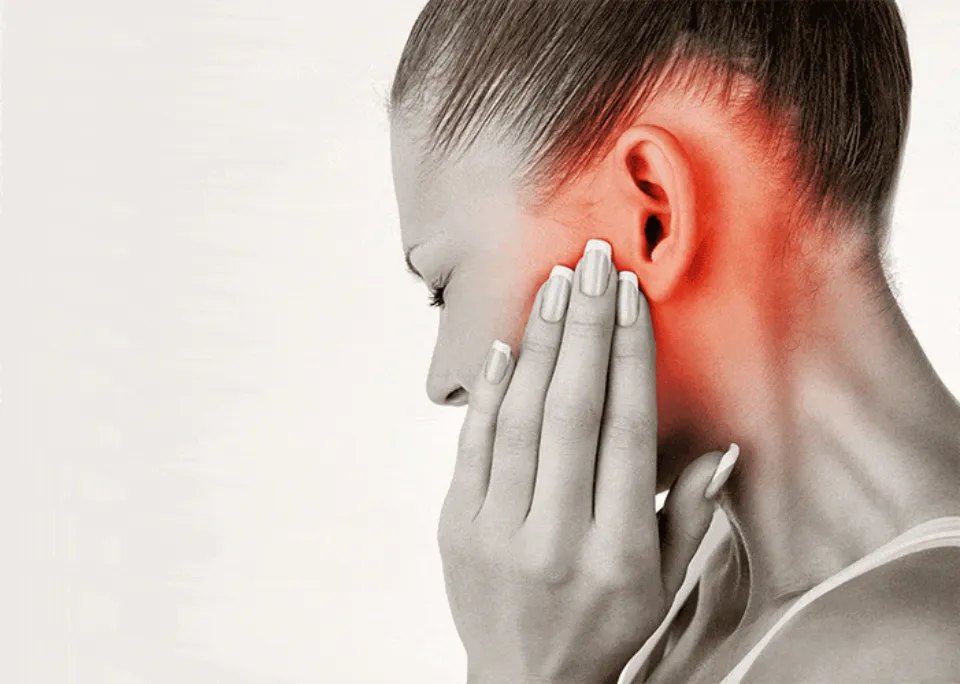
But what is the main reason for crowding of the teeth? And what causes TMJ pain in people who clench their teeth? The issue can be solved if these questions can be satisfactorily addressed. Even though the teeth have been straightened, the mouth and jaws may not have been optimized in its entirety. Teeth should fit comfortably and line up from top to bottom.
The mouth should have enough space for the tongue to move around freely. In order to prevent the tongue from backing up into the airway, there should be enough room in the mouth and the lower jaw should be positioned forward.
How Do Conditions in the Mouth Influence TMJ Dysfunction?
- Breathing – One of the main functions of the mouth is to breathe. When the mouth is too small, the tongue’s space is constrained, and the tongue may become displaced into the throat and obstruct normal breathing. Teeth clenching is a result of this activity at night.
- Talking – believe it or not, when things are not right in the mouth there can be speech problems.
- Tongue function – when the tongue is crowded or crooked teeth are in the way, there can be issues with proper tongue function and swallowing
- Swallowing – improper swallowing can lead to tongue thrusts the push the teeth around and cause instability. The entirety of a retainer cannot be held.
- Head Posture – the relationship of the upper and lower jaw has everything to do with posture. Long story.
Why Do People Get Braces and Invisalign?
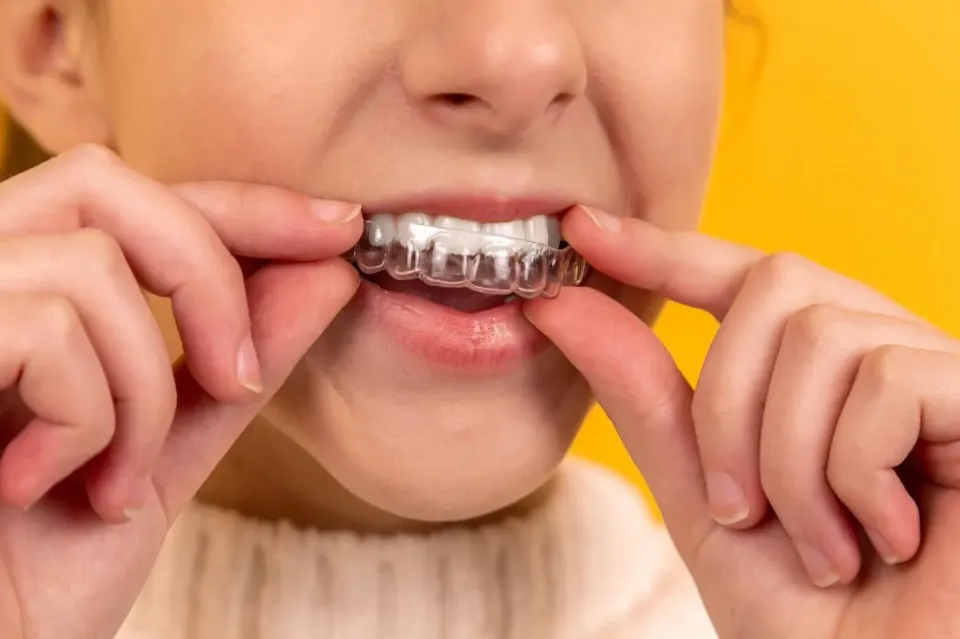
There is typically a reason why someone requests braces, such as tooth crowding, crookedness, misalignment, or improper biting. Typically, these issues are complaints about the way things appear and feel. Although braces can be used to straighten teeth, they don’t always solve all dental issues that affect function.
The same problems can cause TMJ discomfort, teeth grinding, bruxism, and even sleep apnea. Another frequent nighttime airway issue linked to the spaces in the mouth is upper airway resistance syndrome (UARS).
Read More: How to Know if You Need Braces
How Can Braces Contribute to TMJ Problems?
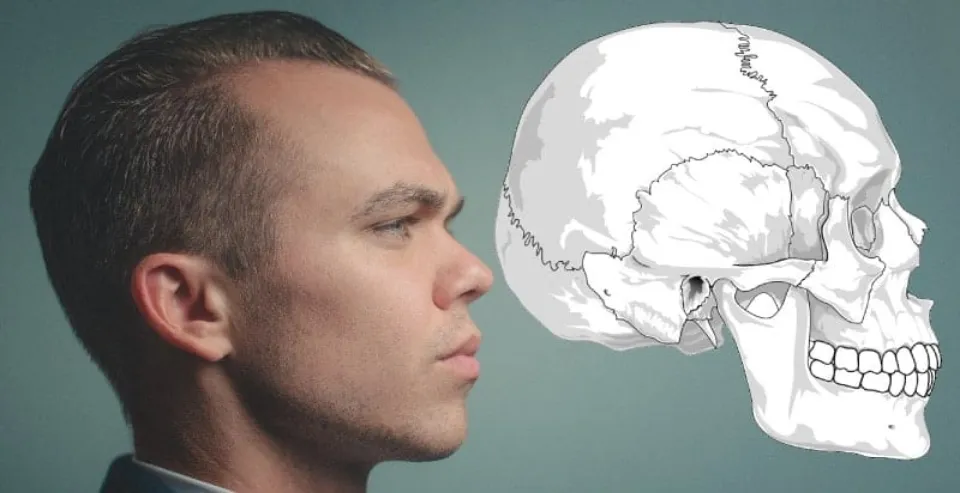
There may not be enough room for the tongue when braces are removed because the teeth may be too far back in the mouth. The tongue can move into the throat, especially at night, which can obstruct breathing. By altering the upper and lower jaws’ size and shape, braces can prevent the face from growing more outward.
Even worse, braces can be used to pull the jaws and teeth backward, which is almost always bad. Often, braces alone won’t completely fix a bad bite; expanders or even surgery may be required. The Vivos DNA appliance is the best appliance for adult patients with TMJ disorders, sleep apnea, and UARS issues. For kids with crowded teeth and small jaws, the ALF dental appliance is the best option.
Can Braces Fix TMJ Disorder?
Yes, one of the best treatments for TMJ disorder can include braces. When teeth or jawbone misalignments are the root of your TMJ dysfunction, braces can help relieve symptoms and stop the disease from worsening.
Can Smile Direct Club Cause Bruxism and TMJ?
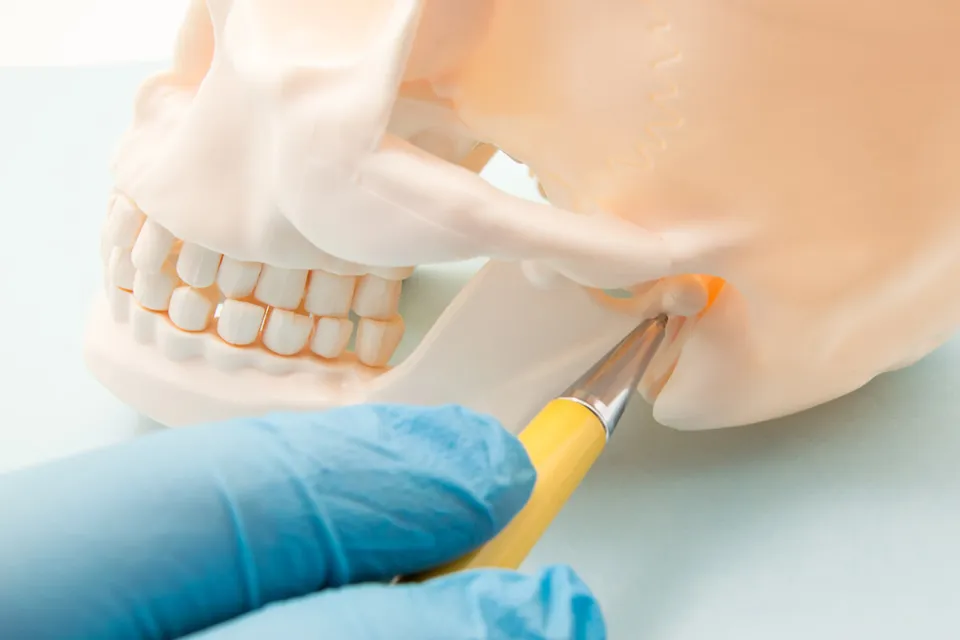
It is most likely to result in a bad bite and TMJ issues because Smile Direct Club is carried out by a qualified dentist. Cheap and full of shortcuts, the treatments. What you pay for is no longer always what you get. Maybe less.
Retraction to close spaces in cases of microdontia is the most frequent TMJ issue we see at Smile Direct and Evenly. Additionally, IPR and retraction are used to treat dental crowding. The mouth is condensed and the tongue is crowded by these two modalities. TMJ, mouth breathing, teeth clenching, and airway resistance are the effects.
Conclusion
We trust that this knowledge has improved your comprehension of TMJ disorder, its causes, and methods of treatment. If you’re thinking about getting braces, be sure to discuss any TMJ symptoms with your orthodontist before beginning treatment. This way, before deciding how to proceed, your orthodontist can evaluate your history in great detail.
FAQs
Is TMJ Common After Braces?
Frequently, people ask Taddeo if braces can lead to TMJ disorder. This question is, fortunately, not unusual. The use of braces or any other type of orthodontic treatment has not been linked in any way to TMJ disorder, according to scientific research.
Do Braces Aggravate TMJ?
The most popular and efficient treatment for TMJ is braces. If your bite is the root of your TMJ symptoms, wearing braces to straighten your teeth and reposition your jaws may help. In order to correct the relationship between your teeth on each jaw, orthodontic treatment is required. This will end TMJ pain.
Are My Braces Causing Jaw Pain?
When wearing braces, you may experience jaw pain, especially if your treatment calls for realigning your jaw. Depending on how bad the pain is, over-the-counter analgesics may help manage it. Moreover, this might happen again following each tightening.
Can TMJ Be Triggered by Dental Work?
Your bite may be misaligned as a result of uneven or careless dental work, which increases your risk of TMJ. Your dentist or oral surgeon is in charge of making sure your bite is even during a dental procedure. Poor dental work, such as incorrectly positioned dental implants, can lead to TMJ.





Average Rating